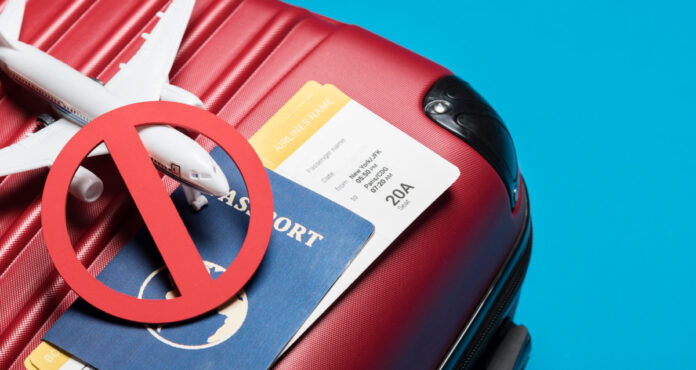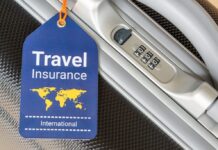Traveling to the United States is an exciting experience, whether you’re exploring New York City, road-tripping across Route 66, or enjoying the sunny beaches of California. But amid the excitement, there’s a darker side: travel scams. According to the Federal Trade Commission (FTC), thousands of travelers report fraud each year, often involving fake bookings, rental scams, or identity theft.
The good news? With awareness and preparation, you can enjoy a safe, scam-free trip. In this blog, we’ll break down the most common travel scams in the USA, how to spot them, and the practical steps you can take to protect yourself.
Why Are Travel Scams a Growing Problem in the USA?
Scammers are getting smarter. They use official-looking websites, fake customer support lines, or even social media ads to trick unsuspecting travelers. The rise of online bookings has made it easier than ever for criminals to pose as rental hosts, ticket sellers, or tour operators.
In fact, the FBI’s Internet Crime Complaint Center (IC3) and the FTC warn that fraud spikes during peak travel seasons, especially summer and winter holidays, when people are in a rush to book cheap deals. That’s why learning how to avoid travel scams in the USA is essential for both tourists and locals.
Common Travel Scams You Might Encounter
1. Fake Vacation Rentals
One of the most reported scams involves fraudulent Airbnb or VRBO listings. Scammers copy photos from legitimate listings, offer steep discounts, and then pressure you to pay outside the platform.
How to avoid it:
- Always pay within the booking platform.
- Reverse search listing photos to check authenticity.
- Verify the host’s reviews and history.
2. Phony Travel Websites and Booking Links
Fraudsters create websites that look like airline or hotel booking portals. Victims often find these sites through ads or phishing emails offering “too-good-to-be-true” discounts.
How to avoid it:
- Type the airline or hotel URL directly into your browser instead of clicking on ads or links.
- Look for “https://” and check that the site belongs to the official company.
- Search the company name + “scam” or “reviews” before paying.
3. Payment Scams
Scammers often demand untraceable payments such as wire transfers, cryptocurrency, or gift cards. Once money is sent, it’s nearly impossible to recover.
How to avoid it:
- Use credit cards for bookings, they offer fraud protection and chargeback rights.
- Refuse any request for gift cards or cash transfers.
- If pressured, walk away immediately.
4. Phone and Email Impersonation
Ever received a call from someone claiming to be from your “airline” or “hotel,” asking for your details to “confirm your booking”? This is a common scam.
How to avoid it:
- Never share financial or personal details over unsolicited calls.
- Hang up and call the company directly using the number on their official website.
- Be wary of urgent refund offers via text or email.
5. Taxi, Rideshare, and ATM Tricks
On the ground, some scams involve unofficial taxis overcharging tourists or fake rideshare drivers pretending to be your driver. Card skimmers at gas pumps and ATMs are also common.
How to avoid it:
- Confirm your rideshare driver’s name, license plate, and photo before entering.
- Use only trusted ride-hailing apps.
- Inspect ATMs for signs of tampering and avoid dimly lit machines.
Safety Tips: How to Protect Yourself While Traveling in the USA?
Beyond avoiding the scams above, here are practical steps every traveler should take:
- Stick to official government websites for passports, visas, or travel documents. Only trust domains ending in “.gov.”
- Keep multiple copies of your passport and travel insurance (digital and physical).
- Set fraud alerts with your bank or credit card company before traveling.
- Avoid public Wi-Fi for sensitive tasks like banking. If necessary, use a VPN.
- Limit cash and rely on secure contactless payments.
What to Do If You Fall Victim to a Travel Scam?
Even the most careful travelers can fall prey to sophisticated schemes. If you suspect fraud:
- Report immediately to the FTC at ReportFraud.ftc.gov.
- File a complaint with the FBI’s Internet Crime Complaint Center (IC3).
- Alert the Better Business Bureau (BBB) Scam Tracker to warn other travelers.
- Contact your bank or credit card company to block unauthorized charges.
The sooner you act, the better your chances of minimizing damage.
Quick Pre-Booking Checklist
Before hitting “Pay Now” on your travel booking, ask yourself:
- Is the website official and secure (https://)?
- Am I using a credit card, not a wire transfer?
- Have I checked the cancellation/refund policy?
- Did I verify the rental photos, host identity, and address?
- Do I have alerts set on my bank account?
If you answer no to any of these, reconsider before proceeding.
Conclusion
Scams thrive on urgency, pressure, and distraction. By slowing down, verifying details, and sticking to safe practices, you can enjoy the best of the USA without falling victim to fraud. Remember: if a deal seems too good to be true, it probably is. Trust official sources, pay securely, and report suspicious activity. Traveling smart isn’t just about packing right, it’s also about protecting your money, identity, and peace of mind. Now that you know how to avoid travel scams in the USA, your journey can stay focused on what really matters: unforgettable experiences.








